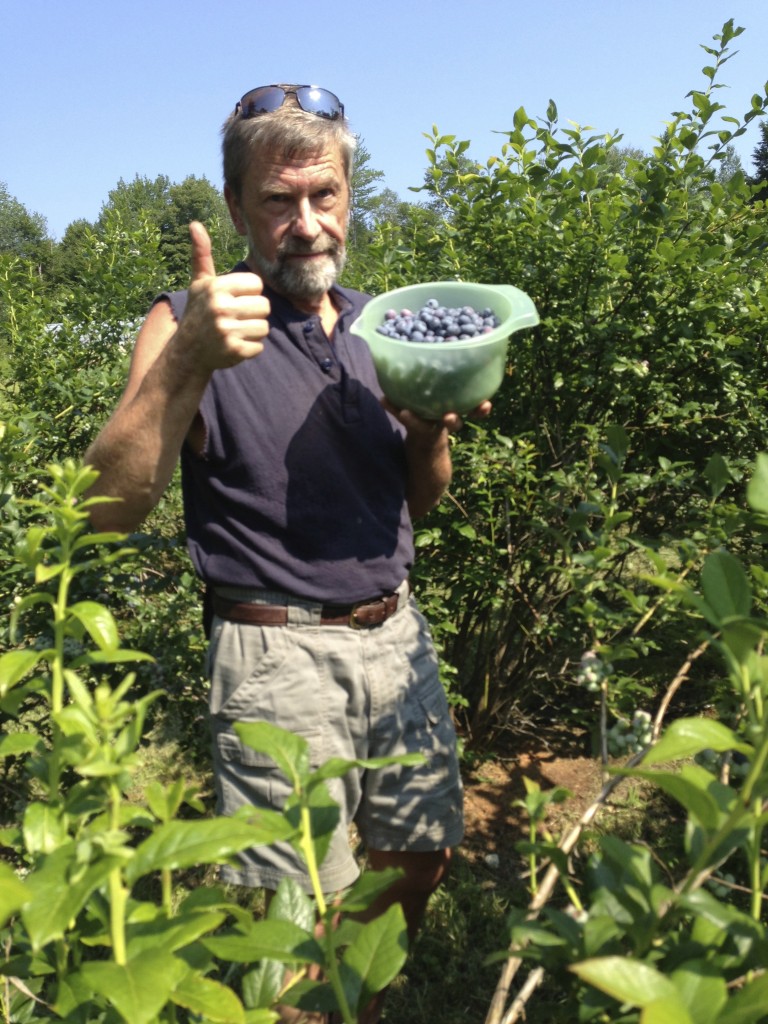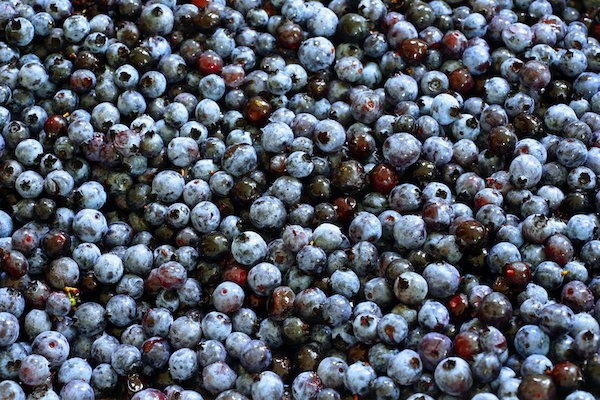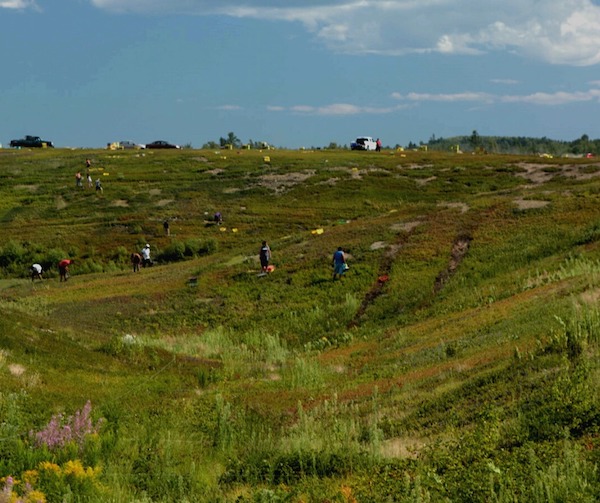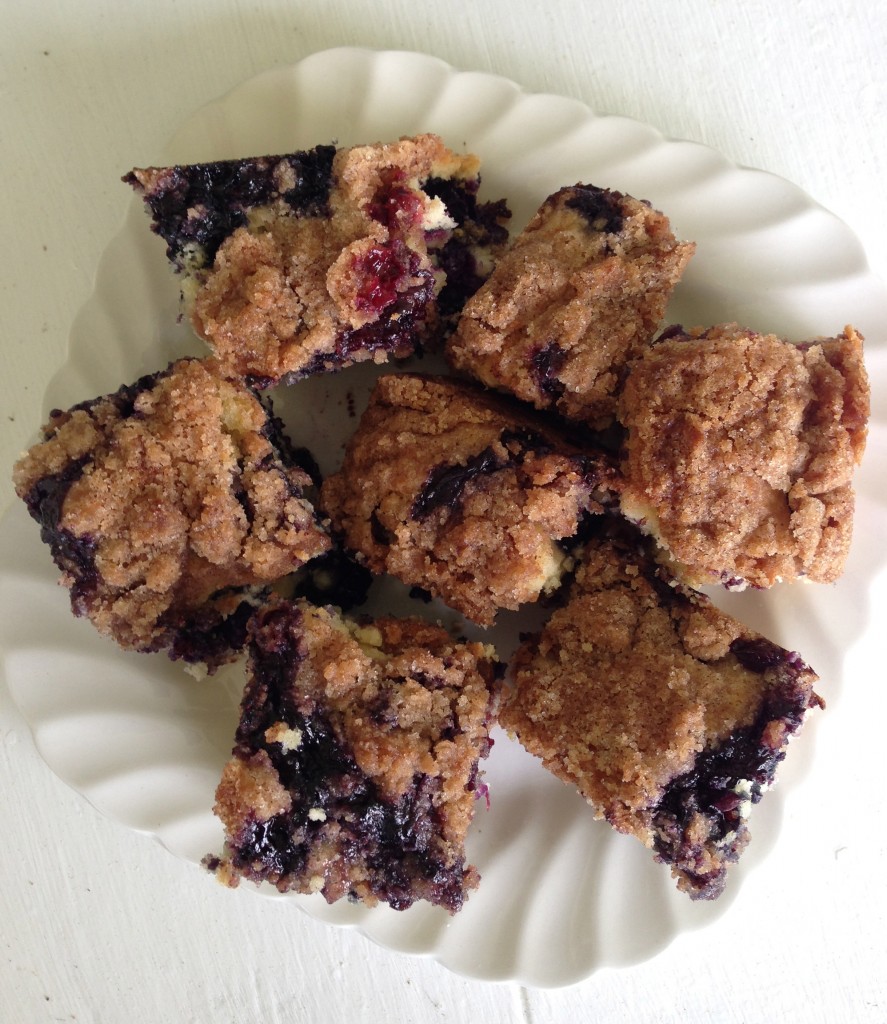Did you know that Maine is the largest producer of wild blueberries in the world? That’s just one of the things I discovered while researching the mighty berry. We produce 10 percent of all blueberries in North America, which includes wild and cultivated.
Did you also know that July is National Blueberry Month? I already have a list of where you can pick your own blueberries in Maine, so I decided why not go a few steps further and explain the difference between wild and cultivated berries and the history behind them.
Wild blueberries have been growing naturally in Maine, eastern Canada, and Quebec for more than 10,000 years – after the glaciers retreated. There are thousands of varieties, and because of this diversity, they offer a range of flavors from sweet to oh, so tart.
In both Maine and Canada, the Wabanaki tribes were among the first to discover and use wild blueberries for nutrition and healing purposes. Today there are four Maine tribes known collectively as the Wabanaki — the Maliseet, Micmac, Penobscot, and Passamaquoddy.
In March 2020, I did a wonderful, really interesting podcast with Wayne Newell, a Passamaquoddy Indian man from Indian Township, a reservation or community in Princeton, Maine. Wayne was instrumental in helping the Passamaquoddy carry on their blueberry tradition. He collaborated in developing the Passamaquoddy Wild Blueberry Company in the early 80s and was its president for nearly 30 years. They have about 2000 acres of blueberry barrens in Columbia Falls and are a major contributor to the Maine wild blueberry industry.
About 12 miles from Columbia Falls is the town of Cherryfield, which is considered the wild blueberry capital of the world. It’s also home to the world’s largest grower, Wyman’s, whose mission is to “help the world eat more fruit”. If you’re lucky enough to live in Maine, you might get some free blueberry samples from them this summer. Brand ambassador Amanda Boyd will be driving throughout the state in Wyman’s new Bee Wild Mobile educating people about the benefits of wild blueberries and passing out free samples. Interested? Here’s the schedule.
How are wild blueberries different from cultivated one? As a start, they’re smaller and grow on lower bushes. Many wild blueberries are harvested using hand-held berry rakes, but some are machine harvested. Either way, they are usually sorted, cleaned, and processed within hours of being picked and for the most part frozen.
Kitty Broihier is a registered dietitian based in Maine and the nutrition advisor for the Wild Blueberry Association of North America. She says wild blueberries have a very short season and are usually harvested from mid to late August, but are always available.
If you cannot find them fresh you can always find them frozen, you have to look for “wild” on the label! You can also freeze any fresh ones you find — just don’t wash them first. Most people find them great for baking because they hold their shape better than regular blueberries, whether fresh or frozen, and they also have a more intense taste. Perfect for smoothies, especially from frozen, of course.
Hungry for more information about Maine’s wild blueberries? (Sorry, I couldn’t resist.) You’ll find plenty on the Wild Blueberry Association’s website, including details about Maine’s first-ever Wild Blueberry Weekend in early August. One other tidbit: The wild blueberry is the official state fruit of Maine.

Now, what about cultivated blueberries?
According to the Highbush Blueberry Council, back in 1893, Elizabeth White, whose family grew cranberries in New Jersey, saw the potential in cultivating blueberries. In 1908, botanist Frederick Coville started experimenting with wild blueberries to figure out which would be the best to cultivate. Three years later, White read Coville’s “Experiments in Blueberries” and invited him to work together on the family farm. By 1912 their collaboration came to fruition and in 1916 they harvested and sold their first commercial crop of cultivated highbush blueberries.
By the 1990s blueberry production had reached 100 pounds a year and currently, growers in North America produce millions of pounds of highbush blueberries. Most, but not all of the farms in Maine that allow you to pick your own blueberries grow cultivated highbush berries. When you check out my list, you will find a couple of places that let you rake wild berries.
All blueberries are a healthy choice, but Kitty says wild blueberries are special.
Nature has made them hardy enough to last for the last 10,000 years without any help from us. Wild blueberries are not hybridized or bred in any way. Nutrition-wise you could say that wild blueberries are especially high in beneficial phytochemicals, most notably anthocyanins, which also give the berries their blue color. Wild blues also have twice the fiber of high bush “regular” blueberries, not to mention you get twice the berries per cup — more to love!
Kitty Broihier
Both wild and cultivated blueberries are low in calories and high in fiber and vitamins C and K. Wild berries may have an edge on phytochemicals, but they both contain powerful antioxidants and other compounds that are supposed to protect our cells from free radical damage and unhealthy inflammation. The American Heart Association has also certified blueberries as heart-healthy. Simply put, you can’t go wrong with either wild or cultivated.
In the end, it may come down to availability and personal preference. Kitty says go wild.
Most people find them great for baking because they hold their shape better than regular blueberries — whether fresh or frozen — and they also have a more intense taste. Perfect for smoothies, especially if frozen, of course.
The Highbush Blueberry Council points out that cultivated berries come in “… many forms — including fresh, frozen, dried, and canned — creating endless possibilities.”
What blueberry possibilities can you dream up? Here’s a cake recipe I’ve made many times. Just mentioning it makes my mouth water! The best blueberry cake I ever ate!





Leave A Comment